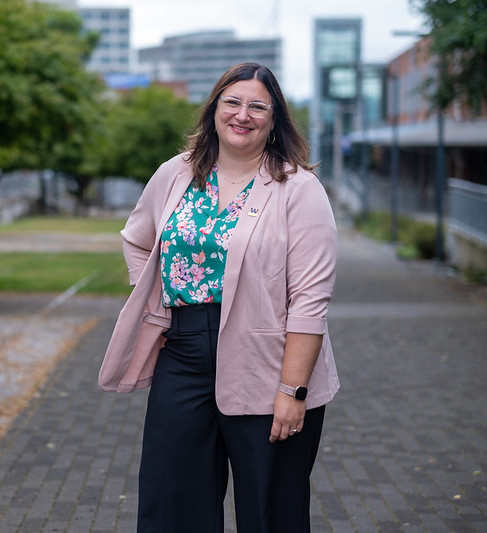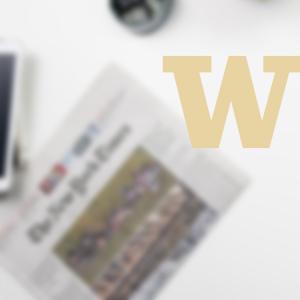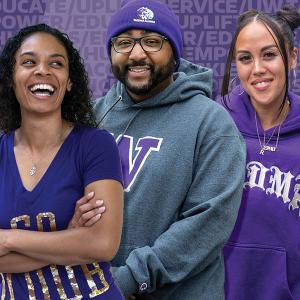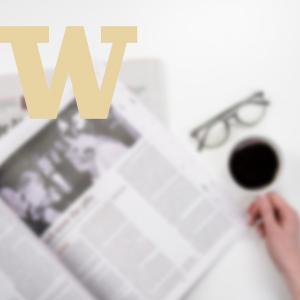Main Content
“We prepare students to be adaptable outstanding leaders, professionals and citizens.”
One Unique School,
Three Great Departments
The School of Interdisciplinary Arts and Sciences is UW Tacoma's Liberal Studies program, with 15 majors in the humanities, social sciences, mathematics and natural sciences and more than 1,100 students enrolled.
What Should I Study?
To help you find the degree that is right for you, you can browse our courses by department or use our major finder to discover everything we have to offer!

Culture, Arts and Communication
Explore. Express. Elevate.
Ignite passion, fuel creativity and shape culture in fields like digital media, publishing, education, arts and more. Join our vibrant CAC community and transform into a creative force, equipped with lifelong learning tools for a career that thrives.
Sciences and Mathematics
Together we teach, learn and discover.
Science in action: At UW Tacoma, discovery knows no bounds. Join faculty-led research projects that take you from labs to the field, preserving native species, studying micropollutants in our waterways and more. Experience hands-on learning in the heart of the South Puget Sound, where curiosity meets real-world impact.


Social Sciences
Discover. Discuss. Drive Social Impact.
Ever wondered why people behave in certain ways, how societies function or what shapes our world? Explore the social sciences and understand how human behavior, historical context, economic systems and power dynamics collectively shape society and have a profound impact on the world. Join SOCS and become a more informed and engaged global citizen.
Find Your Major
Filter by type of conference
-
An Arts, Media and Culture degree prepares students for a range of careers including publishing, the arts, media, museum work, public relations and public history. It is also appropriate for students pursuing broad cultural literacy, as well as for those planning to continue their education in advanced study in performing and visual arts or the humanities.
-
The Bachelor of Science degree in Biomedical Sciences immerses students in an exploration of topics in the life sciences, including cell biology, genetics, microbiology, molecular biology, neurobiology and physiology, as they are applied to the science of human health. The BS in Biomedical Sciences also allows students to fulfill some undergraduate course requirements for admission to medical, dental, veterinary, pharmacy and other health and science-related graduate or professional schools.
-
In the communication major, you will actively and systematically study the power that media wield in the world today. You will study the role media and communication play in shaping public opinion, how it crosses boundaries between private and public life, as well as the role media plays in different intersecting arenas, including culture, society, national and global development and our own identities. The diverse range of courses in the major encourage the development of important skills related to critical thinking, creativity, collaboration and communication.
-
The EPA major is a great choice for students interested in learning about and developing solutions to contemporary problems in public life. It will also introduce you to som eof the economic challenges facing us today on local, state and national levels.
-
The Bachelor of Science degree in Environmental Science provides students with a strong science background with a focus on the environmental issues of the future. Through lecture, lab and field classes, you will get hands-on experience with biology, chemistry, the geosciences, physics and math. In this program students learn how to draw connections between these disciplines needed to solve the complex environmental problems facing the local community and society at large.
-
The Bachelor of Arts degree in Environmental Sustainability prepares students to understand, analyze and solve environmental and sustainability challenges. Interdisciplinary foundations in environmental sciences, including natural and social sciences, combine with training in communications, writing, law, critical perspectives, and emerging sustainability science. Students also choose one of four options for in-depth study: Environmental Policy and Law; Environmental Communication; Business/Nonprofit Environmental Sustainability; or Pre-Environmental Education. A capstone course or certificate links students to real-world projects, internships and/or research. An organizing theme throughout the major is coupled human and natural systems.
-
The Ethnic, Gender and Labor Studies major examines how communities form and are transformed, with a focus on the relationship between social class, race and ethnicity and gender. This major has a special focus on African-Americans, Latino/as, Native Americans, Asian Americans, the multiracial working class and Women and Gender Studies. Through a wide variety of courses in the social sciences and humanities, students explore historical roots of various communities and analyze movements to facilitate labor and community organizing, coalition building, conflict resolution, group empowerment and movements for social change.
-
Students in the Global Studies concentration study a variety of subjects and themes in an international context, including artistic, cultural, political and economic patterns among and within other nations and may choose to focus their studies on one or more world regions or on specific themes. Advanced language study is an integral component of Global Studies.
-
History majors learn how to gather information from primary and secondary sources, cull and analyze that information, identifying its most significant aspects, reach conclusions and produce well-written narratives and oral presentations relating the contents and results of their work.
-
The Interdisciplinary Arts and Sciences major provides broad exposure to key areas of knowledge within the arts and sciences while stressing their interconnectedness. This degree is based on core courses in history, environmental science, literature/arts, social science and an introduction to Interdisciplinary Arts and Sciences and allows students to maximize the potential of interdisciplinary studies while gaining the skills they need to be successful in a rapidly changing society and world.
-
The Law and Policy program provides students with a strong liberal arts foundation for the study of law and policy. The interdisciplinary nature of the program invites students to engage with a variety of different perspectives on the social and legal problems facing societies on local, state, national and global levels. Students in this major develop a deep appreciation for the complex relationships between law, society, culture and politics.
-
The Bachelor of Science degree in Mathematics provides students with a strong theoretical foundation and practical applications to help graduates secure STEM-related jobs in the South Sound region. The program is structured so that you will see the three branches of mathematics: algebra, analysis and geometry and study one of these topics in depth. A two-quarter sequence of study in one of these branches is required, fostering a depth and maturity of mathematical thought in a modern context. The flexibility of this degree allows you to follow multiple pathways into the major and through the upper division courses while supporting your personal career goals.
-
Politics, Philosophy and Economics (PP&E) offers an innovative curriculum for students drawn to interdisciplinary approaches and diverse frameworks for understanding social phenomenon. PP&E majors take a shared set of introductory courses, then choose from three specializations: Politics and Philosophy, Economics, or International Studies.
-
Psychology is the scientific study of the psychological, biological and contextual determinants of human behavior. Here at UW Tacoma, we see Psychology as a liberal art as well as a rigorous social science. Our program is ideal for students who plan to work as professional psychologists and need a sound preparation for graduate study. This major is also for students who plan a career in fields dealing with people, such as nursing, teaching, social work, guidance and human resources and those who want to understand human behavior as part of a well-rounded education.
-
Students in the Spanish Language and Cultures major develop language skills and cultural competence needed to compete in an increasingly diverse world. Developed using the American Council on the Teaching of Foreign Languages (ACTFL) guidelines, our program offers practical skills-based language classes and a strong emphasis on contemporary Latin American culture.
-
Writing Studies enables students to learn to write effectively in a range of genres and to think critically and creatively, with a well-rounded liberal arts education in the sciences and the humanities. Three tracks: Creative Writing, Technical Communication and Rhetoric, Writing and Social Change.
We're here for you!
In person: WCG 424
Monday to Thursday: 9:00 am to 4:00 pm or by appointment
Friday: 9:00 am to 12:00 pm or by appointment
Phone: 253.692.4450
Email: iashelp@uw.edu

School of Interdisciplinary Arts & Sciences
About the Dean
Dr. Natalie K. Eschenbaum (PhD 2006, Emory University) is Dean of the School of Interdisciplinary Arts and Sciences (SIAS). Before joining the UW Tacoma community, Natalie was Division Chair of Arts and Humanities at St. Catherine University, Chair and Professor of English at the University of Wisconsin, La Crosse (UWL), and Freshman and Sophomore Programs Coordinator and Academic Adviser at the University of Minnesota. Her research focuses on sensation studies and affect theory (specifically the affect of disgust) in early modern English literature. She publishes on Shakespeare and seventeenth-century poets, including Robert Herrick, and is co-editor (with Barbara Correll) of
Natalie's administrative background is especially robust in strategic visioning, personnel management, faculty development, community outreach, and data-driven curriculum design and management. Her teaching and administrative philosophies are student-centered and emphasize interdisciplinarity, social justice, and global perspective. At UWL, she spearheaded the development of an English for Medical Professions BS degree, a unique multidisciplinary program that includes courses in Biology, English, and the Health Humanities. In 2019, she oversaw a community reading program, collaborating with Sia Siab, Inc., and a number of other local partners. Natalie also served as Director of UWL’s Jail Literacy Program and developed an Arts and Culture Mini Course program at Shakopee Women’s Prison in Minnesota. She has taught Shakespeare courses in London multiple times and served as Interim Director of UWL’s China 2+2 Program, a partnership with three universities in China. She is a champion of shared governance and twice chaired UWL’s Faculty Senate. In 2021, Natalie was elected President of the Association of Departments of English (ADE), a national group that is part of the Modern Language Association (MLA) and offers leadership development for department chairs.
Natalie is thrilled to help advance UW Tacoma’s essential mission and believes that SIAS’s forward-thinking design will be the model of liberal arts learning in the next few decades. She believes the many great needs of our time can best be addressed by working collaboratively across disciplinary lines, and together with Tacoma’s community organizations, non-profits and business.
SIAS NEWS
SIAS Associate Professor Ruben Casas says how the city uses planting strips along streets tells a tale of haves and have-nots, and of our differing standards.
Connected through their leadership roles at a family resource center, UW Tacoma alumni Amalia Perez, Bryan Neal and Roxy Magno are dedicated to serving their community both personally and professionally.
Michael Kula was selected to serve as Fulbright Writer-in-Residence at Adam Mickiewicz University in Poznań, Poland. In addition to teaching courses in AMU’s Center for the Affirmation of Literature, he will be completing final research and revisions for his book, “The Long Alone,” a creative nonfiction account of the travels of Kazimierz Nowak, an amateur Polish journalist who bicycled alone across Africa in the 1930s.
Eric Stowe (SIAS '01) founded Splash to improve public health in urban areas through schools around the world, focusing on clean water and sanitation.
A mix of students studying biomedical sciences, accounting, social work and computer science make up this year’s UW Tacoma contribution to the Husky 100.
More Stories




